Welcome, senior homeowners! Today, we’re going to dive into the fascinating world of reverse mortgages and explore how they can impact your retirement nest egg. Reverse mortgages have gained popularity in recent years as a financial tool that allows homeowners to tap into the equity of their homes. But what exactly are reverse mortgages, and how do they affect your retirement? Let’s find out!
Understanding Reverse Mortgages
A reverse mortgage is a loan product that enables homeowners aged 62 and older to convert a portion of their home equity into cash. Unlike traditional mortgages, where borrowers make monthly payments to the lender, reverse mortgages work in the opposite way. Instead, the lender makes payments to the homeowner, either as a lump sum, fixed monthly payments, or as a line of credit.
The Benefits of Reverse Mortgages
Reverse mortgages offer several benefits for senior homeowners:
Supplementing retirement income:
Reverse mortgages can provide an additional source of income during retirement, helping homeowners cover living expenses or pursue their dreams and passions.
No monthly mortgage payments:
With a reverse mortgage, you are not required to make monthly payments to the lender as long as you live in the home as your primary residence.
Flexibility in accessing funds:
Reverse mortgage funds can be received in different ways, allowing you to choose the option that best suits your financial needs.
Loan proceeds are usually tax-free:
In most cases, the money received from a reverse mortgage is considered a loan advance and not taxable income. However, it’s always a good idea to consult with a tax professional to understand your specific situation.
Now, let’s dig deeper into how reverse mortgages can affect your retirement nest egg. It’s essential to consider the following aspects:
How Reverse Mortgages Affect Your Retirement
Impact on Home Equity
A reverse mortgage allows you to access a portion of your home equity, which can reduce the equity available to you in the future. As you receive funds from the reverse mortgage, the loan balance increases, potentially decreasing the value of your estate. However, it’s crucial to remember that you still own your home, and you can live in it as long as you meet the loan requirements.
Loan Costs and Fees
Reverse mortgages come with various costs and fees, which can impact the overall value of your retirement nest egg. These costs may include origination fees, closing costs, mortgage insurance premiums, and interest charges, which are typical charges with any home loan. It’s essential to understand these expenses and consider them when evaluating the financial implications of a reverse mortgage.
Interest Accrual
With a reverse mortgage, interest accrues over time on the outstanding loan balance. The longer you have the loan, the more interest will accumulate. This can result in a higher loan balance over time, potentially reducing the equity available in your home. It’s important to factor in the interest accrual when assessing the impact on your retirement fund
Inheritance Planning
If leaving a substantial inheritance for your loved ones is a priority, a reverse mortgage may affect your plans. As mentioned earlier, the loan balance increases over time, potentially reducing the equity available in your home. This means there may be less value to pass on to your heirs. However, it’s crucial to remember that reverse mortgages are non-recourse loans, which means the loan balance cannot exceed the value of the home at the time of repayment.
Frequently Asked Questions
Can I lose my home with a reverse mortgage?
No, you cannot lose your home as long as you meet the loan requirements. You must continue to live in the home as your primary residence, maintain the property, and stay current on the property taxes and homeowners insurance.
How much money can I receive from a reverse mortgage?
The amount you can receive from a reverse mortgage depends on several factors, including your age, the value of your home, current interest rates, and the specific reverse mortgage program you choose. Generally, the older you are and the more valuable your home, the higher the loan amount.
Will I still own my home with a reverse mortgage?
Yes, you will still own your home with a reverse mortgage. The lender does not take ownership of the property. As long as you meet the loan requirements, you can continue to live in your home and retain ownership.
Do I need to repay the reverse mortgage while I’m alive?
No, you do not need to make monthly mortgage payments while you’re alive and living in the home. The loan balance and any accrued interest are typically repaid when the last borrower permanently leaves the home.
Can I sell my home if I have a reverse mortgage?
Yes, you can sell your home if you have a reverse mortgage. When you sell the home, the loan balance, including any accrued interest and fees, will be paid off from the proceeds of the sale. If there is any remaining equity, it will be yours or your heirs’ to keep.
Can I use a reverse mortgage to buy a new home?
Yes, it is possible to use a reverse mortgage to purchase a new home. This is known as a Home Equity Conversion Mortgage for Purchase (HECM for Purchase). It allows you to use the proceeds from the sale of your current home, combined with a reverse mortgage, to buy a new primary residence.
The LeaderOne Lowdown on How Reverse Mortgages Affect Your Retirement
Reverse mortgages can have a significant impact on your retirement nest egg. While they offer benefits such as supplemental income and the elimination of monthly mortgage payments, it’s crucial to consider the potential impact on your home retirement planning. Careful evaluation and consultation with a reputable lender, such as LeaderOne Financial Roller Mortgage Team, can help you determine if a reverse mortgage is the right option for your specific financial situation.
If you’re considering a reverse mortgage, take the time to gather all the information you need and consult with professionals who can guide you through the process. Your retirement nest egg deserves the best possible care, and with the right knowledge, you can make sound financial choices that align with your goals and aspirations.



